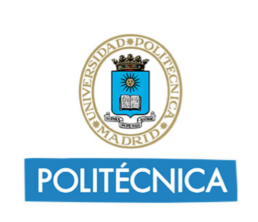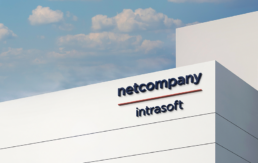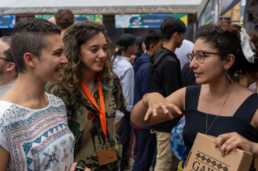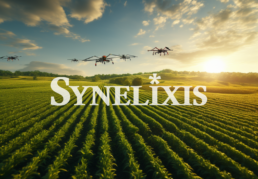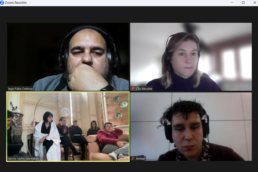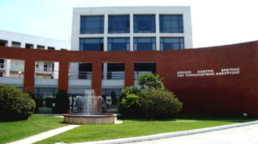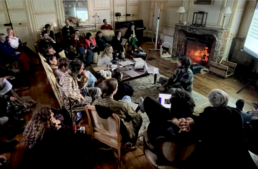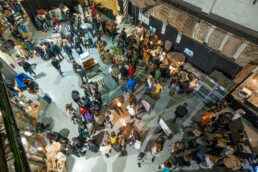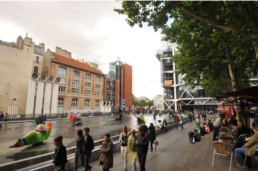European Law on Artificial Intelligence has been published
The European Law on Artificial Intelligence (AI) holds significant implications for the creative industry, ushering in a new era of responsible and ethical use of AI technologies. Here are several ways in which this legislation can impact and benefit the creative sector:
- Ethical AI Practices:
- The law emphasizes the importance of ethical considerations in AI development. For the creative industry, this means incorporating AI technologies responsibly in content creation, ensuring that AI-generated content aligns with ethical standards and respects cultural sensitivities.
- Prevention of Discrimination and Bias:
- One of the key aspects of the legislation is the commitment to preventing discrimination and bias in AI systems. In the creative industry, this can translate to more inclusive and diverse representation in AI-generated content, fostering creativity that respects and reflects the diversity of audiences.
- Transparency and Accountability:
- The law promotes transparency in AI systems, ensuring that users are informed when they interact with AI-generated content. In the creative industry, transparency can enhance the relationship between creators and their audiences, fostering trust and understanding about the role of AI in content creation.
- Human Oversight in AI-Generated Content:
- High-risk AI applications, including those used in critical infrastructure and content creation, will require human oversight according to the legislation. This ensures that human creativity and judgment remain integral in the creative process, even when AI tools are employed.
- Protection of Intellectual Property:
- The legislation's emphasis on protecting fundamental rights includes safeguarding intellectual property. For artists and creators, this means that AI-generated content should respect copyright laws and intellectual property rights, preventing unauthorized use or replication.
- Incentive for Innovation in the Creative Industry:
- By setting clear guidelines and standards, the law provides a regulatory framework that can stimulate responsible innovation in the creative industry. It encourages the adoption of AI tools for enhanced creativity while ensuring that these tools are used ethically.
- Promotion of European Excellence:
- The legislation positions Europe as a leader in shaping the ethical landscape of AI. This can attract talent and investment to the European creative industry, fostering an environment where businesses and creators are recognized for their commitment to responsible AI practices.
- Global Influence and Collaboration:
- As the European Union takes a proactive stance on regulating AI, it sets an example for global standards. This can encourage international collaboration in the creative industry, with shared principles that promote ethical AI use worldwide.
In summary, the European Law on Artificial Intelligence brings a framework that encourages responsible AI practices in the creative industry. By promoting ethical considerations, transparency, and human oversight, it seeks to ensure that AI technologies are harnessed in a manner that aligns with societal values and respects the integrity of creative expression. This can lead to a more vibrant, inclusive, and ethically driven creative landscape in Europe and beyond.
UPM, leading DAFNE+ Project
Universidad Politécnica de Madrid (UPM) is one of the most prestigious technical universities in Spain and Europe, offering a wide range of undergraduate, graduate, and doctoral programs in engineering, architecture, and technology-related fields of study. Established in 1971, UPM has become a leading institution in higher education, research, and innovation, providing quality education and cutting-edge research opportunities to students from all around the world.
UPM’s academic programs are designed to provide students with comprehensive theoretical and practical knowledge, preparing them to become highly skilled professionals and leaders in their fields. The university’s faculty is composed of renowned scholars and experts in their respective fields, providing students with a high-quality education that combines academic rigor with practical application.
Inside UPM, Grupo de Aplicaciones de Telecomunicación Visual (GATV) or Visual Telecommunications Applications Group is a research group at the Universidad Politécnica de Madrid focused on developing advanced multimedia technologies for various applications, including virtual reality, immersive media, and multimedia communication. The GATV research group has participated in more than 150 research projects (25 in H2020 and 10 in Horizon Europe) and has a long history of research excellence, with numerous publications in leading international conferences and journals, as well as active participation in national and international research projects. Their research activities are focused on several areas, including 3D modeling and reconstruction, visual analytics, multimedia communication, and immersive media.
In DAFNE+, UPM plays an important role as leader of the project, whose purpose is creating a decentralized platform for fair creative content distribution empowering creators and communities through new digital distribution models based on digital tokens.
UPM also leads Use Case 1 called "User generated heritage content". In this use case DAFNE+ is going to demonstrate the focus to users willing to produce content, to be exchanged in the platform with other users or communities or consumed, with the corresponding reward. In DAFNE+ platform users will be empowered to generate their content with the control of where, how, who and with fair conditions, their content can be exchanged and revenues are fairly distributed to the prosumers as creators, and their communities behind.
Netcompany-Intrasoft in DAFNE+
Netcompany-Intrasoft is a leading European IT Solutions and Services Group with strong international presence and expertise, offering innovative and added-value solutions of the highest quality to a wide range of international and national public and private organizations. The Company’s Head Offices are located in Luxembourg (2b rue Nicolas Bové, L-1253 Luxembourg).
Netcompany-Intrasoft (previously known as INTRASOFT International) was founded in 1996 by Intracom Holdings and remained a member of it until October 2021. As of November 2021, Netcompany-Intrasoft became a member of the Netcompany Group, a Denmark located IT company founded in 2000. Netcompany is the fastest growing and most successful IT services company in the Nordics, owning vast technology experience and deep industry-specific knowledge, creating innovative solutions tailored to meet business goals.
Netcompany-Intrasoft employs more than 3,200 highly skilled professionals, representing over 50 different nationalities and mastering more than 30 languages. With headquarters in Luxembourg, Netcompany-Intrasoft operates through its operational branches, subsidiaries and offices in 10 countries: Belgium, Cyprus, Greece, Jordan, Luxembourg, Romania, RSA, Scandinavia, UAE and USA. More than 500 organizations in over 70 countries worldwide have chosen the company's services and solutions to fulfill their business needs.
Netcompany-Intrasoft's expertise and strength lie in its proven capacity and successful track record in undertaking and delivering, complex, mission - critical projects. Netcompany-Intrasoft's professionals have developed the ability to combine their technical expertise with thorough understanding of each customer’s individual business needs.
Τhe Research and Innovation department participating in DAFNE+ research project explores emerging technologies and their application in diverse sectors paving the way for the company’s products and continuously enhancing its capacities.
In DAFNE+, Netcompany-Intrasoft brings in its expertise in user-led platform design and blockchain technologies and thus leads the user requirements, system architecture and specifications efforts. Additionally, it plays a significant role in the development of the decentralized blockchain-based marketplace of cultural artefacts and NFT -based exchanges
Fab City Foundation contributing to the definition of new fair economic models
The Fab City Foundation is the stewarding body of the Global Initiative of Fab City, which aims to shift the global production paradigm towards a more meaningful approach to how we organize production and consumption in cities. The Fab City Global Initiative comprises three arms: the Fab City Foundation, Fab City Collective and Fab City Network, which together form a global movement of citizens, government, experts and enthusiasts who work together to instigate this transformation.
The Foundation fosters the structured implementation of the Fab City agenda through innovation projects, distributed educational programs, knowledge transfer opportunities and network building.
In DAFNE+, Fab City Foundation puts this experience to promote fair economic models for the Cultural and Creative Industries. In particular, we work with communities of makers, designers, musicians, and more to find sustainable and fair economic models supported by blockchain technology.
Our contribution to DAFNE+
- Fab City Foundation recognizes the importance of designing and developing innovative economic models, inspired in open and cooperative community practices and innovative blockchain solutions. Our participatory research and design practices help us understand the values of DAFNE+ communities and catalize their creativity towards the design of fair economic models addressing their needs. The community will be actively engaged in the design and testing of these models.
- The Foundation will be evaluating the progress of the project, helping communities to test and validate DAFNE+ platform and tools. These evaluations serve to iterate our designs and improve how our tools support our communities.
- Fab City Foundation will be proposing a sustainable business model for DAFNE+ platform, and define the exploitation strategy of the outcomes of the project. This strategy will support the continuation of the project and maximize its impact. The model will be based in other sustainable blockchain-based and online communities, using direct participation and ownership as well as open collaboration and licenses to drive open innovation and community stewardship.
Fab City Foundation acknowledges the significance of the role of communication technologies infacilitating the cooperation and sharing that the new modes of production need. Our local communities can benefit from a global network that shares designs and information and rewards all contributors while encouraging local adaptations, diversity and the best redistributive practices. Our participation in DAFNE+ will contribute to the definition of new fair economic models, and the development of digital infrastructure to support them. These are key elements for the transition towards sustainable futures we envision.
Synelixis seeks to apply its blockchain-based expertise in the art sector through DAFNE+
Synelixis Solutions is a high-tech company founded to operate as a one-stop shop and provide complete telecommunications, networking, security, control and automation solutions to professionals, industries, businesses and home users. A key principle in Synelixis Solutions approach is to offer the best technology at the lowest price. We always try to minimize the disruption to the customers, through an in-depth consultation process, which drills down to extract their exact needs and requirements and explore their available resources; thereby optimize our customers Return On Investment with solutions that cost less and provide more.
Synelixis Solutions has extensive expertise in blockchain and DLT technologies which are at the core of its Traceability & Supply Chain Intelligence solution family. Synelixis Solutions is currently integrating these technologies in its Cybersecurity & Risk Management solutions family. In parallel, Synelixis Solutions has cultivated Artificial Intelligence relevant expertise in the framework of Cybersecurity solutions.
In DAFNE+, Synelixis Solutions seeks to apply its blockchain-based expertise in the art sector. It plays a crucial role in the design and development of the decentralized DAFNE+ platform which embraces blockchain technologies to ease a wide set of exchanges that take place in the cultural sector and the “art supply chain”. Additionally, Synelixis Solutions develops artificial intelligence-based tools for image processing allowing the users to “style” any image according to their preferred style (e.g. Van Gogh’s style).
DAFNE+ Webinar at Glitch3
DAFNE+ Project aims to create a decentralized platform for fair creative content distribution empowering creators and communities through new digital distribution models based on digital tokens. With this idea in mind we celebrated a webinar at Glitch3 a two-week art and tech rsidency that took place this Autumn near Paris.
During one hour, some members of the partnership explained what the project is about and how the platform will work to the artists that were attending the webinar. In the other hand the team had the chance to hear some very interesting insights from those artists that had attended the residency, which gave a rough idea of how the artistic community will receive the platform once its launched.
Aspects like progressive fees, licenses or reputation were some of the issues treated. Also the neccesity to create a community and the important role of education as trigger to make a good onboarding process into blockchain and DAFNE+ future platform.
Glitch and its history
Glitch was celebrating its 3rd edition with the theme "Alternative Intelligences". The main purpose of the residency was to encourage collaborative endeavors amongst artists and engineers, with a particular focus on interdisciplinary works that incorporate art and technology in new and innovative ways.
They also promote artists to move beyond the traditional minting of NFTs in order to explore blockchain as a medium, investigating the new functionalities and programmability of blockchain technology in order to create new and innovative artworks that would not be possible without the blockchain.
CERTH aims to help the artistic community with 3D content production
The Centre for Research and Technology Hellas (CERTH), founded in 2000, is one of the largest research centers in Greece and the EU. It is located in Thessaloniki, Greece and its mission is to promote the triplet Research – Development – Innovation by conducting high quality scientific research and developing innovative products and services while building strong partnerships with industry (national and international) and strong collaborations with research centers and universities in Greece and abroad.
CERTH consists of five (5) Institutes, the largest of which is Information Technologies Institute (ITI). CERTH-ITI is one of the leading Greek institutions in the field of Information and Communications Technology (ICT) with long experience in numerous European and national R&D projects. The main research interests of CERTH-ITI lie in the field of Image/video processing, AI, Multimedia, HCI, VR & AR, Security, Additive manufacturing, e-health and Networks & Communication.
The Visual Computing Lab (VCL) is one of the main labs under the umbrella of ITI and it consists of 4 main researchers and more than 80 research associates. VCL’s research is focused on a large and diverse range of areas, including AI, Image/video processing, Security, 4D Media Processing, Tele-immersion, Human Motion Analysis, e-health and Nutrition, e-learning and Gamification and IoT. In the framework of the DAFNE+ project, the VCL lab of CERTH-ITI is responsible for developing several content creation tools, as well as the recommendation engine for the DAFNE+ platform. More specifically, VCL is developing a 3D avatar customization tool that enables artists to personalize their own 3D avatar models with several customization features.
Moreover, VCL is developing novel AI-based 3D pose estimation and 3D object reconstruction algorithms that process single or multiple images to facilitate the artistic community with 3D content production. Finally, VCL is concerned with the design and development of a sophisticated AI recommendation engine, capable of providing accurate recommendations to users based on their preferences, thus enhancing the personalization of the DAFNE+ platform.
DAFNE+ will be present at Glitch3 venue
Dafne+ platform will be presented in the art and technology residency Glitch next week. Glitch is a two-week residency designed to foster breakthrough creativity at the nexus of artificial intelligence and blockchain. This 2023 celebrates it's 3rd edition. Starting on October 23rd, it will create the perfcet immersive situation for artists and technologists to be able to explore new creative practices merging art and technology.
With the title "Art Residency on Alternative Intelligences", GLITCH³ will take place in a 17th-century chateau surrounded by nature in Burgundy, France. This residency will reunit a group of 30 experts and visionaries from different fields to immerse in hands-on workshops, philosophical forums, brainstorming encounters, and much more.
This innovative residency looks to engage artists with state-of-the-art technologies and platforms. But also to equip them with tools and insights that will help them embarce the potential of blockchain and AI in their work.
Over the last three years GLITCH has hosted over 100 artists and instigated many new initiatives and institutional collaborations, within the art world and beyond.
Primavera De Filippi is one of the promotors of this encounter. She is a French legal scholar, internet activist, and artist known for her pioneering work at the intersection of blockchain
technology, arts, and the law. Her research focuses on the legal challenges and opportunities of blockchain technology and artificial intelligence. She was a founding member of the Global Future Council on Blockchain Technologies at the World Economic Forum, and co-founder of the Internet Governance Forum’s working group on Blockchain Technology. Also we are proud to say that she is also one of DAFNE+ Ambassadors.
Empowering Creative Communities: Fab Lab Barcelona's Role in the DAFNE+ Project
Fab Lab Barcelona, part of the Institute for Advanced Architecture of Catalonia (IAAC), is leading one of the use cases of DAFNE+. Fab Lab Barcelona was the first Fab Lab funded in Europe in 2007, affiliated with MIT's Center for Bit and Atoms. It still remains a place where design, computation, and fabrication come together, fostering collaboration and knowledge-sharing. Fab Lab Barcelona aims to empower individuals to turn their ideas into real prototypes using digital fabrication technologies like 3D printing, laser cutting, and CNC milling. It also acts as a connection hub for diverse creative minds, including makers, designers, students, educators, craftspeople, artists, tech-savvy creators, academics, art enthusiasts, curators, researchers, and managers. The Distributed Design Platform is a project co-funded by the European Union coordinated by Fab Lab Barcelona, with 17 members from a diverse pool of cultural and creative organisations across Europe. The objective of the platform is to act as an exchange and networking hub for the European maker movement to develop and promote the connection between designers, makers and the market.
The people who are part of the Fab Lab Network and the Distributed Design Platform, along with their respective and extended communities, are the central focus of our case study and contribute significantly to our research.
In the context of DAFNE+, Fab Lab Barcelona is exploring new alternative economic models that can empower and sustain these practitioners. We plan to identify tools and methodologies by collaborating with the maker and design communities in the Fab Lab Network and the Distributed Design Community that respect our core values of openness, collaboration, regeneration, and ecosystemic thinking.
At Fab Lab Barcelona, community involvement has been crucial for identifying our use case primary objectives in DAFNE+. We used surveys and interviews to collect input from our community and two main areas of interest emerged. The first is to create financial structures supporting open-source projects and decentralized collaboration. This ensures recognition and benefits for all contributors involved in the project, from its development to eventual sale. Second, another significant aspect of our research is the potential application of blockchain and cryptocurrencies to physical objects. This expands the horizons of these emerging technologies beyond software and digital art, driven by the interest of the makers' community.
Within DAFNE+, Fab Lab Barcelona aims to give voice to our communities needs, fostering collaboration and empower creators through new research methods. We will work with experts from the Fab Lab Barcelona and Distributed Design Platform networks, along with like-minded partners in the DAFNE+ consortium, to address these important concerns and find solutions that benefit our community.
IRCAM, cradle of musical creators and innovators
IRCAM (Institut de recherche et coordination acoustique/musique) was founded by composer and conductor Pierre Boulez in 1977 as part of the Centre Pompidou project in the heart of Paris. Following the pioneering experience of the Bauhaus, Boulez's vision in the late 70s was that the future of contemporary music would be shaped by advances in science and technology. In this spirit, IRCAM was conceived as a place bringing together researchers and engineers on the one hand, and artists - composers, performers, sound designers - on the other, enabling multiple forms of interdisciplinary interaction between them for their mutual benefit. Since then, IRCAM has remained a benchmark art-science-technology institution, where artistic production, at the service of leading artists, is a permanent source of experimentation and needs for scientific research and technological innovation, sometimes years ahead of mass-market developments in ever broader economic sectors, starting with the creative and cultural industries.
IRCAM has grown considerably over the last few decades. Its research and development activities are organized in the STMS (Science et Technology of Music and Sound) joint lab, which brings together over 100 researchers and engineers with the support of the CNRS, Sorbonne University and the French Ministry of Culture. It is a leading international laboratory in a wide range of scientific fields of STMS, from physics and acoustics to human cognition and musicology, with core research into all aspects of sound and musical information processing.
One of IRCAM's distinctive features in the academic landscape is its involvement in professional technological development, both as a support and result of research, industrial transfer through its commercial subsidiary Ircam Amplify, and as creative tools for artistic production. These tools made of numerous technological components and several integrative environments form the basis of its in-house artistic production, with over 30 new works produced each year and presented at various international venues, including its annual ManiFeste festival in Paris in June. They are also made available to the IRCAM Forum, a growing community of 40,000+ users, including artists, researchers and engineers involved in the creative technologies of sound and music, who meet regularly in the IRCAM Forum's workshops in Paris and in partner institutions in various countries.
In DAFNE+, IRCAM is in charge of coordinating the use-case pilots, including the one on experimental sound and music production, and contributing to the specifications and technical development of the platform.
Building on the IRCAM Forum and its community, IRCAM's participation in DAFNE+ will enable it to experiment with new possibilities for empowering the players in this ecosystem, made possible by blockchain and NFT technologies and the community governance rules of DAOs: declaring their ownership of the creative tools and technical repositories used to produce works of art, making them directly available to other community members and possibly monetizing them or obtaining crowdfunding support for new artistic projects, among other aspects.

